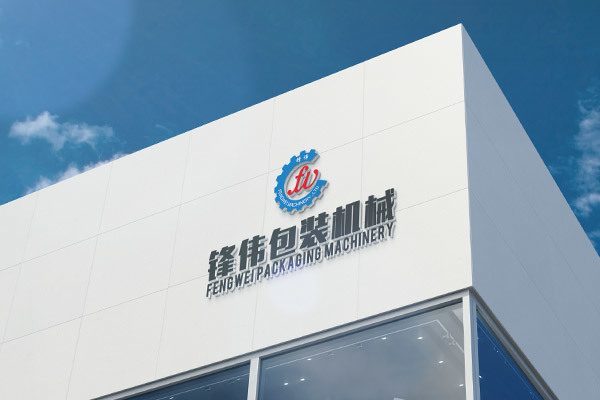Understanding Hydraulic Valves: The Heart of Fluid Control in Industrial Equipment
Hydraulic valves are essential devices in fluid power systems, primarily used to control the flow and pressure of hydraulic fluid. They are integral to the operation of hydraulic machinery, which is prevalent in industries ranging from manufacturing to construction. Understanding the different types and functions of hydraulic valves can greatly enhance your knowledge of industrial equipment and th
Jun 25,2025

Hydraulic valves are essential devices in fluid power systems, primarily used to control the flow and pressure of hydraulic fluid. They are integral to the operation of hydraulic machinery, which is prevalent in industries ranging from manufacturing to construction. Understanding the different types and functions of hydraulic valves can greatly enhance your knowledge of industrial equipment and their applications.
There are several types of hydraulic valves, each designed to perform specific tasks. The most common types include directional control valves, pressure relief valves, and flow control valves. Directional control valves manage the path of fluid flow within a hydraulic system, enabling operators to control the movement of actuators or cylinders. Pressure relief valves protect the hydraulic system from excessive pressure by diverting fluid back to the tank when a predetermined pressure is exceeded. Flow control valves regulate the speed of hydraulic actuators by adjusting the flow rate of the hydraulic fluid.
One of the key aspects of hydraulic valves is their construction, which typically includes various components such as spools, springs, and seals. These components work together to ensure the valve operates smoothly, allowing for precise control of fluid movement. Hydraulic valves can be operated manually, electrically, or hydraulically, depending on the application and system requirements. The choice of operation method can significantly affect the efficiency and responsiveness of the hydraulic system.
The importance of hydraulic valves in industrial applications cannot be overstated. They serve as the control center for hydraulic systems, influencing the performance and reliability of machinery. Properly functioning hydraulic valves enhance productivity by ensuring that equipment operates efficiently and with minimal downtime. Additionally, regular maintenance and timely replacement of hydraulic valves can prevent system failures and costly repairs.
Furthermore, advancements in hydraulic valve technology have led to the development of smart valves that can be integrated with automation systems. These smart valves allow for real-time monitoring and control, improving the overall performance and adaptability of hydraulic systems. As industries embrace automation and smart manufacturing, the role of hydraulic valves will continue to evolve, offering new opportunities for enhanced functionality and efficiency.
In conclusion, hydraulic valves are indispensable in the realm of industrial equipment and systems. Their ability to control fluid flow and pressure is critical for the optimal performance of hydraulic machinery. By understanding the different types of hydraulic valves and their functions, industry professionals can ensure their systems operate effectively, paving the way for improved productivity and operational success.
There are several types of hydraulic valves, each designed to perform specific tasks. The most common types include directional control valves, pressure relief valves, and flow control valves. Directional control valves manage the path of fluid flow within a hydraulic system, enabling operators to control the movement of actuators or cylinders. Pressure relief valves protect the hydraulic system from excessive pressure by diverting fluid back to the tank when a predetermined pressure is exceeded. Flow control valves regulate the speed of hydraulic actuators by adjusting the flow rate of the hydraulic fluid.
One of the key aspects of hydraulic valves is their construction, which typically includes various components such as spools, springs, and seals. These components work together to ensure the valve operates smoothly, allowing for precise control of fluid movement. Hydraulic valves can be operated manually, electrically, or hydraulically, depending on the application and system requirements. The choice of operation method can significantly affect the efficiency and responsiveness of the hydraulic system.
The importance of hydraulic valves in industrial applications cannot be overstated. They serve as the control center for hydraulic systems, influencing the performance and reliability of machinery. Properly functioning hydraulic valves enhance productivity by ensuring that equipment operates efficiently and with minimal downtime. Additionally, regular maintenance and timely replacement of hydraulic valves can prevent system failures and costly repairs.
Furthermore, advancements in hydraulic valve technology have led to the development of smart valves that can be integrated with automation systems. These smart valves allow for real-time monitoring and control, improving the overall performance and adaptability of hydraulic systems. As industries embrace automation and smart manufacturing, the role of hydraulic valves will continue to evolve, offering new opportunities for enhanced functionality and efficiency.
In conclusion, hydraulic valves are indispensable in the realm of industrial equipment and systems. Their ability to control fluid flow and pressure is critical for the optimal performance of hydraulic machinery. By understanding the different types of hydraulic valves and their functions, industry professionals can ensure their systems operate effectively, paving the way for improved productivity and operational success.
PREVIOUS:
Related Posts
Two methods of repairing hydraulic waste paper packer
Repair of hydraulic waste paper packer is a comprehensive process activity which is far more complex than maintenance technology. Workers are required to be familiar with and proficient in the operation of vehicle
Why is waste paper packing machine an environmental protection machine with superior performance
The patent technology of fast pressurization, that is to say, under the condition of keeping the power displacement of the motor oil pump constant, improves the upper limit of the pressure of the oil cylinder
Contact Us
E-mail :
fengwei666@hbfwbzjx.cn
Phone/WhatsApp:
+86-15350765366
Address:
Dongguang county south industrial zone, cangzhou city, hebei province





